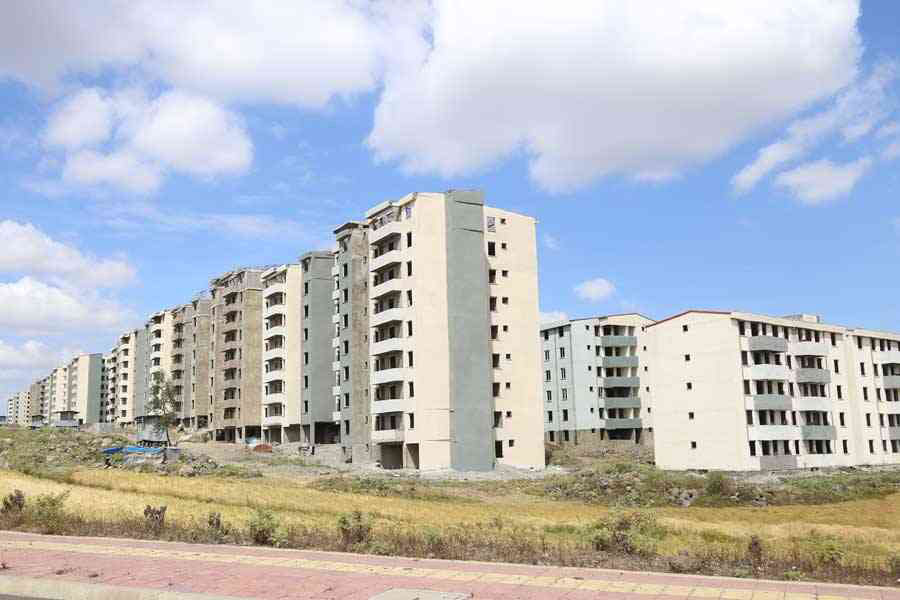
Radar | Jul 24,2021
Aug 26 , 2023
By Kim Fe Cramer
Allowing households to invest more in education and providing credit for creating new schools and training programs could generate better education outcomes, argues Kim Fe Cramer, an assistant professor at the London School of Economics, who studies household finance in developing countries, in this commentary provided by Project Syndicate (PS).
At least half the global population lacks access to essential health services, and healthcare expenses push almost 100 million people into extreme poverty yearly. How scarce resources are distributed should matter, and there are good reasons to believe that finance could play a crucial role in addressing this challenge. More than 60 countries have launched national financial inclusion strategies, and academic research is keen on understanding their impact.
Until recently, there was no evidence that finance could make a significant difference in health. Randomized controlled trials that offered households financial products such as savings accounts, credit, and health insurance found no effects. But, crucially, these studies did not examine important long-term and large-scale aspects of banking, nor did they account for the financial products and services offered to businesses and healthcare providers.
In a recent study, I used a natural experiment that introduced variation in bank presence in India to assess the effects of improving financial inclusion nationwide - over a decade - and on different actors in the market. In contrast to previous research, I found substantial improvements in households' health.
In 2005, the Reserve Bank of India (RBI) introduced a policy to incentivise banks to open new branches in underserved districts. After five years, the number of bank branches in these districts had increased by 19pc. More importantly, two nationally representative household-level surveys have shown improved health in these districts compared to similar districts where the policy did not apply.
The Indian Human Development Survey (IHDS), conducted six years after the RBI policy went into effect, demonstrates that households in districts with an increased bank presence were 36pc less likely to experience non-chronic illnesses such as fever or diarrhoea. Likewise, the Demographics & Health Survey, conducted 10 years after the policy was implemented, shows higher vaccination rates and lower risks associated with pregnancy in these districts.
Decreased morbidity rates also improved health-related economic outcomes: the IHDS shows that households missed less school and work owing to illness and incurred significantly lower medical expenses.
Three mechanisms likely played a role in improving health outcomes.
For starters, banks provided credit to local businesses, allowing households to earn more and invest more in health. The data suggest that households directly gained access to financial services. They established savings accounts and, importantly, could also buy health insurance. In India – as in over half of developing countries – local banks sell health insurance policies to their customers, serving as middlemen for insurance companies in major cities. This differs sharply from most developed countries, where health insurance is purchased only directly from insurance companies or obtained from government programs.
Lastly, healthcare providers gained access to credit. Eight years after the RBI policy was implemented, the number of hospitals operating in the incentivised districts had grown by 140pc, and providers were more likely to report institutional loans as their primary source of finance. Local households also reported fewer problems with healthcare supply. Policymakers took to heart the importance of expanding credit to healthcare providers: In May 2021, during the COVID-19 crisis, the RBI provided 6.8 billion dollars in easily accessible credit for the sector.
The substantial effects of finance on health in this natural experiment are more evident than they were in prior randomised controlled trials. Exploring finance using a natural experiment has two important added merits. It allows one to capture general equilibrium effects: evidence suggests that both demand and supply of the healthcare market are stimulated, potentially creating a virtuous cycle.
One can also explore effects on a larger scale over a longer period.
Increased bank presence could also help achieve other United Nations Sustainable Development Goals (SGDs) worldwide. Given the relationship between improved access to bank branches and fewer school absences owing to illness, education is one policy area that could be amenable to financial inclusion efforts. Allowing households to invest more in education and providing credit for creating new schools and training programs could generate better education outcomes.
The success of the RBI policy bodes well for policymakers in developing countries seeking to improve health outcomes. It also warrants further study of how similar interventions could affect demand and supply in other markets. Policy incentives to increase the number of bank branches in underserved areas could ultimately have multiple positive community outcomes beyond improved health indicators.
PUBLISHED ON
Aug 26,2023 [ VOL
24 , NO
1217]


Commentaries | Jun 08,2024

Commentaries | Jun 01,2019

Fortune News | Jun 19,2021

Fortune News | Mar 11,2023

Radar | Dec 17,2022

My Opinion | 131548 Views | Aug 14,2021

My Opinion | 127903 Views | Aug 21,2021

My Opinion | 125879 Views | Sep 10,2021

My Opinion | 123510 Views | Aug 07,2021

Dec 22 , 2024 . By TIZITA SHEWAFERAW
Charged with transforming colossal state-owned enterprises into modern and competitiv...

Aug 18 , 2024 . By AKSAH ITALO
Although predictable Yonas Zerihun's job in the ride-hailing service is not immune to...

Jul 28 , 2024 . By TIZITA SHEWAFERAW
Unhabitual, perhaps too many, Samuel Gebreyohannes, 38, used to occasionally enjoy a couple of beers at breakfast. However, he recently swit...

Jul 13 , 2024 . By AKSAH ITALO
Investors who rely on tractors, trucks, and field vehicles for commuting, transporting commodities, and f...

Jun 28 , 2025
Meseret Damtie, the assertive auditor general, has never been shy about naming names...

Jun 21 , 2025
A well-worn adage says, “Budget is not destiny, but it is direction.” Examining t...

Jun 14 , 2025
Yet again, the Horn of Africa is bracing for trouble. A region already frayed by wars...

Jun 7 , 2025
Few promises shine brighter in Addis Abeba than the pledge of a roof for every family...

Jun 29 , 2025
Addis Abeba's first rains have coincided with a sweeping rise in private school tuition, prompting the city's education...

Jun 29 , 2025 . By BEZAWIT HULUAGER
Central Bank Governor Mamo Mihretu claimed a bold reconfiguration of monetary policy...

Jun 29 , 2025 . By BEZAWIT HULUAGER
The federal government is betting on a sweeping overhaul of the driver licensing regi...

Jun 29 , 2025 . By NAHOM AYELE
Gadaa Bank has listed 1.2 million shares on the Ethiopian Securities Exchange (ESX),...